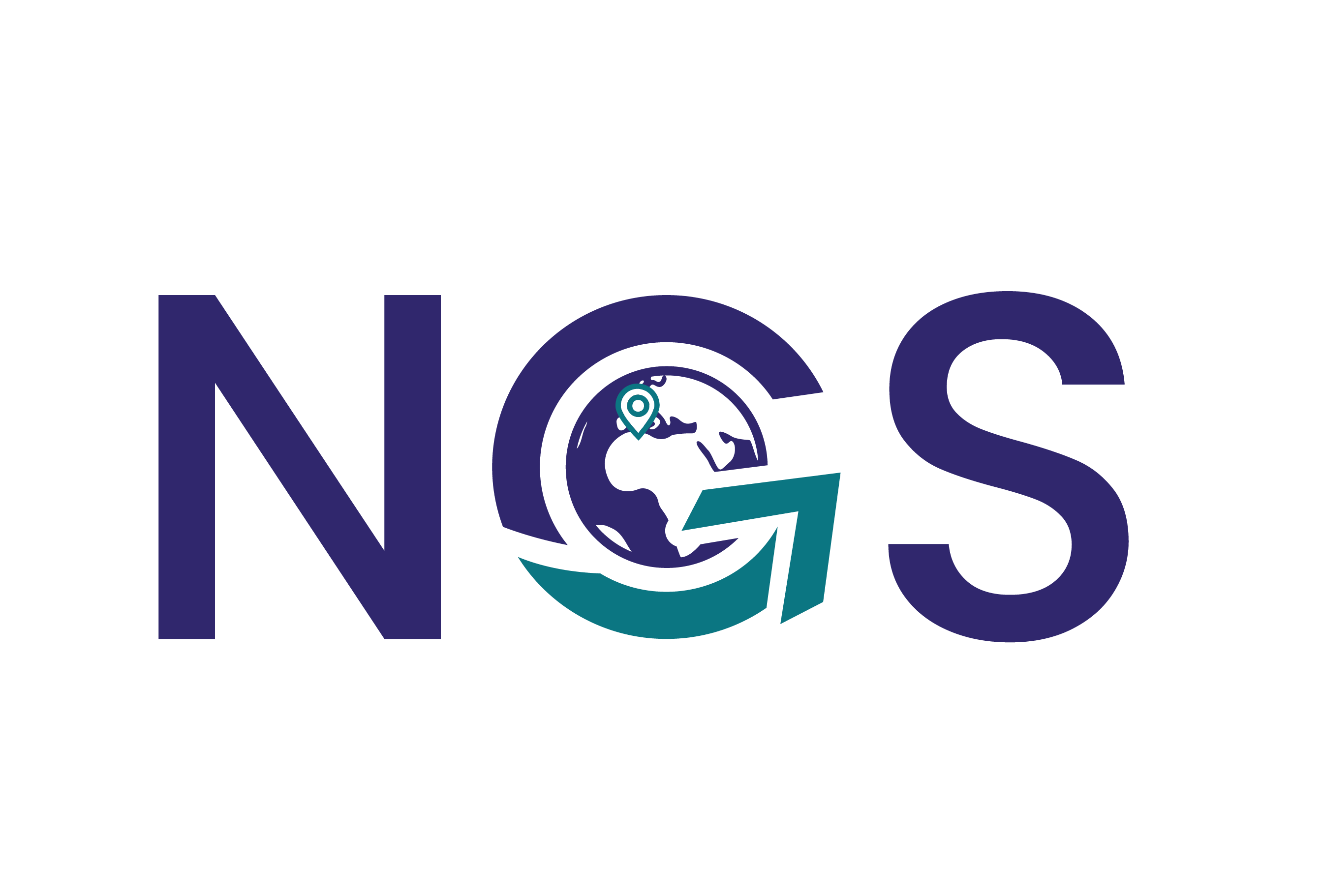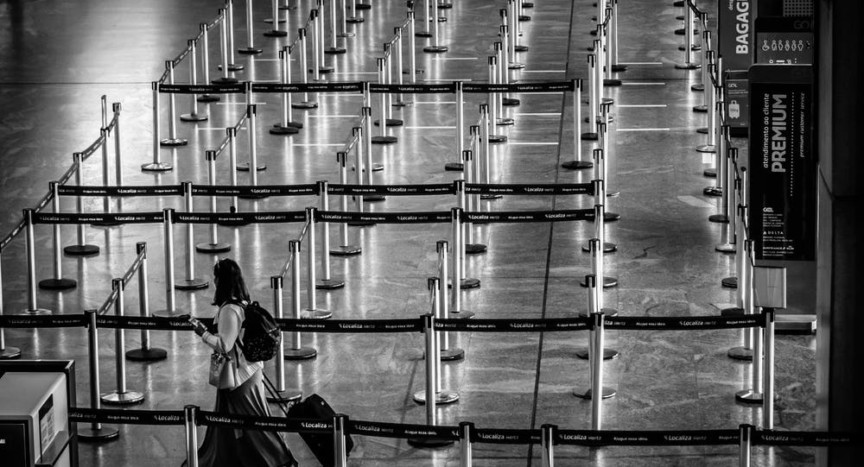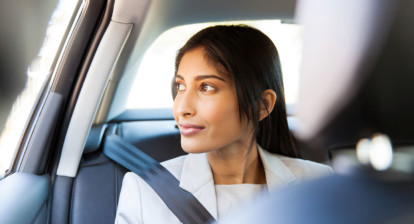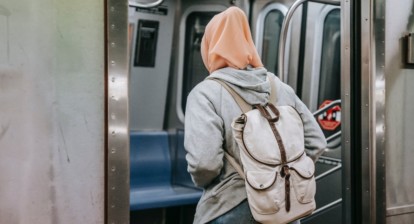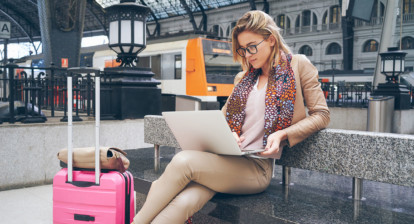This year has been challenging for millions of people and businesses across the world.
Travel restrictions are still in place internationally, and are changing on a constant basis. In addition to these barriers, it is important to consider whether travelling during and post the global pandemic will pose further concerns for lone female business and solo travellers, and how travel trends emerging now could shape the experience of female travellers in the future.
This article also discusses the broader impact of the pandemic on women globally, following a report published by UN Women on the rise and intensification of violence against women and girls, particularly domestic violence (VAWG), since the outbreak of COVID-19.
With nine challenging months behind us, the world is adapting to the ever-changing trends and trajectories of the COVID-19 pandemic. This has included adapting to the ever-present risk of getting caught in a lockdown, the fluctuating status of borders, differing traveller quarantine requirements, varying health-screening procedures, and personal information requests that have become the norm during both leisure and travel activities.
The pandemic has taken hold of everyday life and business operations, also causing several shadow pandemics, some yet to show their severe and long-lasting impacts. These vary between economic, social and health crises, and take varying forms in different places as the result of specific pressure points in respective countries.
Reference to the term ‘shadow pandemic’ appears in many recent articles discussing knock-on effects of the COVID-19 pandemic, which has caused vast waves of other social, health and economic issues. UN Women launched a ‘Shadow Pandemic’ campaign in May to increase awareness of the global growth in violence against women during the COVID-19 health crisis.
Has the risk landscape also changed for women and solo female travellers?
Pre-pandemic surveys conducted by a variety of organisations indicated that the number of women travelling for business and domestic reasons was increasing year on year; the number of women travelling to medium and high-risk countries was also on the rise. In 2018, The Global Business Travel Association (GBTA), the world’s largest association of managers, buyers and service providers, conducted research together with WWStay, that revealed more than half of corporate travel buyers said they had a higher percentage of females in their travelling populations than just three to five years ago. The research into travel patterns also showed a consistent trend that women were much more likely to travel alone than men, and this phenomenon was only rising. The Solo Traveller 2018 reader survey showed a demographic split of 85.7% of female and 13.7% male solo travellers. Unique Home Stays research results followed similar trends, reporting that in 2017, 84% of its solo travellers were female, and only 16% were male.
However, will the progress that has been made year-on-year in female business and leisure travel return unaffected when the world emerges from the pandemic? With the amount of travel by women indicating female economic and social empowerment, how will the latter be affected by a possible change to travel trends? Furthermore, are shadow pandemics having an impact on travel risks? And what should be kept in mind to help ensure safe travel during and post the global pandemic?
Shadow pandemics
Shadow pandemics have manifested themselves in a number of ways. In August, a survey by the Office for National Statistics revealed that almost one in five (19.2%) people in the UK experienced depression in June, almost double the 9.7% with symptoms in the nine months prior to March 2020. The study also found that women, young adults, key workers and disabled people were among those most likely to suffer depression during the pandemic.
Additionally, violence rates increased during the pandemic for women globally. To draw attention to this stark development, UN Women launched the ‘Shadow Pandemic’, a public awareness campaign to shed light on the widely hidden issue.
“Additionally, violence rates increased during the pandemic for women globally. To draw attention to this stark development, UN Women launched the ‘Shadow Pandemic’, a public awareness campaign to shed light on the widely hidden issue.”
A UN Women press release detailed the rise in violence and harassment against women in public spaces and online: “Pandemics like COVID-19 can exacerbate not only violence within the home, but other forms of violence against women and girls. Violence against female healthcare workers as well as migrant or domestic workers increases. Xenophobia-related violence, harassment and other forms of violence in public spaces and online is more prevalent and the risk of sexual exploitation and abuse becomes more likely.”
Furthermore, the report highlighted: “Some groups of women, including human rights defenders, women in politics, journalists, bloggers, women belonging to ethnic minorities, indigenous women, lesbian, bisexual and transgender women, and women with disabilities are particularly targeted by ICT-facilitated violence.”
COVID-19 has also unleashed shadow pandemics on girls across Africa, as warned by Child rights groups. These include rape and sexual exploitation, to female genital mutilation (FGM), child marriage and early pregnancy. Countries such as Ethiopia, Kenya and Malawi have reported increases in teen pregnancies and early marriages. This is raising fears that many girls may not ever return to school, jeopardising decades of work to reverse deep-rooted gender inequalities.
Impact on women at home
The rise of mental health issues during the pandemic is an issue for both employers and employees to work together on to find ways to address concerns. While mental health has become an issue for employees working at home, is it also important for the employer to recognise during business travel and deployments, as we found out during our latest SheTravel webinar ‘Travel safety and mental health: Travel during and post the global pandemic’. The webinar discussed how stress and anxiety can have an impact upon decision-making and vulnerability to external threats, at home and abroad, in unfamiliar environments.
Stress can have an impact on physical, emotional and psychological well-being and this in turn can lead to behavioural changes, as explained by expert speaker Charlotte Copeland, Managing Director of SafeHaven Trauma Centre. Charlotte examined how strategies can be implemented to improve resistance (longer term changes to routine) and resilience (short-term stress management strategies) to stress. Given the travel landscape is currently in a state of persistent flux, it is likely that travel may cause anxiety amongst even the most well-seasoned travellers.
“Given the travel landscape is currently in a state of persistent flux, it is likely that travel may cause anxiety amongst even the most well-seasoned travellers.”
As an organisation, there are several steps that can be implemented to look after an employees’ welfare, both at home and when travelling. Claire Bull, Director of Better Bodies UK, discussed various steps companies can take to build a positive mental health culture: developing a mental health action plan and policy, providing mental health training across the organisation, introducing networks, initiatives and activities involving mental health and communicating these across the organisation, implementing return to work schemes and allowing flexible hours to name a few.
Impact on women travelling
Pre-pandemic, during our female traveller safety workshops women have shared their experiences of security-related incidents that occurred during their travel, varying from sexual harassment, intimidation, serious assault and drink spiking. In general, security concerns for female travellers range from sexual discrimination, verbal and/or physical harassment, local crimes and scams, and limited access to women’s health facilities, medications and hygiene products.
During this health pandemic, has the risk landscape changed for women and solo female travellers?
During our latest SheTravel webinar, Caroline Neil, Managing Director of RPS Partnership, an experienced security consultant and trainer, discussed her first travel experience post-lockdown. After five months with very limited travel, Caroline described her apprehension towards travel, fear of the unknown and disquiet around proximity, amongst other new concerns she observed during her trip. As Caroline explained, the normal risks remain, but for some travellers there may be added concerns, especially when travelling solo. These concerns may arise from changing travel restrictions stranding you in a foreign country alone, to feeling increasingly vulnerable as usually busy places are now quiet and deserted. Furthermore, due to the increased frequency of civil unrest in a number of places globally, female travellers may feel more vulnerable or may be perceived vulnerable when travelling solo due to the sporadic and volatile nature of tensions currently.
Caroline also compared her travel experience with other speakers’ and colleagues – for some airports were empty and most venues closed, while for others flights were busier and there had been aggression and more tension on the aircraft, sometimes concerning face-masks. Face coverings were another discussion point – Caroline highlighted that it is difficult to read facial expressions (a critical source of non-verbal communication) and understand people’s intentions when they are wearing a mask.
From engaging with our members and listening to other women who travel, some have highlighted they are more comfortable waiting until next year when travel restrictions will hopefully be eased allowing them to feel safer again, preferring ‘stay-cation’ options until then. Other women are already travelling and keen to embark on longer trips as soon as they are able to again.
As we move to the latter part of 2020, we are yet to know if the changes to the travel landscape will be permanent, and if the great volumes of women travelling solo as in years before, will return. It is also important to understand that shadow pandemics have the power to shape the destinations and societies we live in and visit, and reverse some of the important steps towards equality already taken.
Female traveller safety considerations
Some tips for female travellers:
- Be extra prepared in your planning.
- Try to book flights landing earlier in the day to make sure you do not arrive late at night at the destination country. Bear in mind that some countries have COVID-19 curfews.
- Try to be last on and first off the aircraft.
- If parking at the airport, consider where you are parking and whether there will be anyone around when you leave and return.
- Stay around people at transport hubs.
- Use reputable pre-booked taxi services; submit your enquiries about their safety protocols before departure.
- Hotels may not be busy, therefore ensure your room is not located in an isolated and empty part of the building.
- Bring enough female products and medication for the duration of the trip. Bear in mind, there may not be opportunities for last minute purchases at the airport and any specific medicine may be difficult to get hold of in the destination country.
- If you are travelling whilst pregnant, ensure that the destination has appropriate medical care available should there be any issues.
- Stay in touch with your trusted contact/employer or arrange a daily check-in call.

